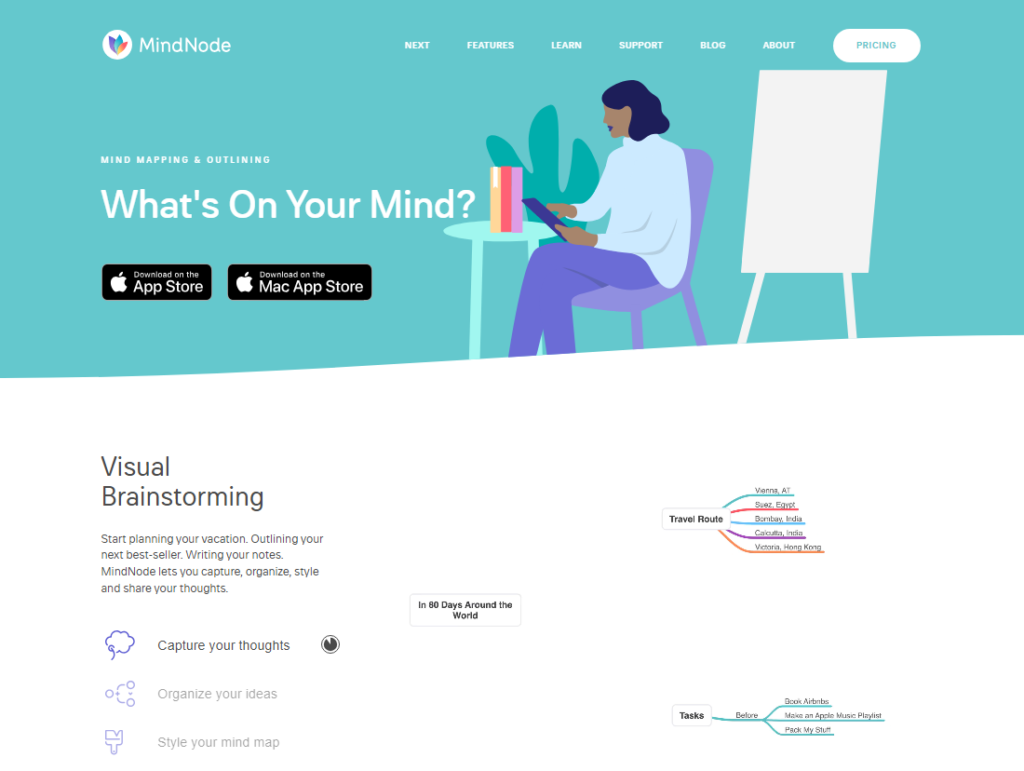
Ever feel like you’re stuck in a rut, yearning for something more? Maybe you’ve got a brilliant idea simmering in the back of your mind, but fear keeps you from taking the leap. You’re not alone. We all have those moments of doubt, those whispers that tell us to play it safe, to settle for the ordinary.
But what if I told you that the greatest adventures, the most fulfilling journeys, often start with a single, courageous step? That’s the essence of entrepreneurship: the audacity to dream big, the resilience to overcome obstacles, and the wisdom to learn from every experience.
In this article, we’ll dive deep into the core principles that fuel this journey, exploring risk-taking, innovation and creativity, leadership skills, networking, resilience in business, mindset shifts for entrepreneurs, work-life balance, and continuous learning.
Think about a world where your ideas have the power to change the world, where your passion fuels your purpose, and where you build something truly remarkable. It’s not a fantasy; it’s a reality waiting to be unlocked.
TL;DR
- Embrace risk: Don’t let fear hold you back. Take calculated risks and learn from your mistakes.
- Fuel your creativity: Develop your innovative thinking and find inspiration in unexpected places.
- Lead with confidence: Build strong leadership skills and inspire your team to achieve greatness.
- Network strategically: Connect with others in your industry and build relationships that will support your growth.
- Develop resilience: Learn to bounce back from setbacks and use challenges as opportunities for growth.
- Shift your mindset: Embrace a growth mindset and focus on learning and continuous improvement.
- Find your work-life balance: Prioritize your well-being and create a sustainable lifestyle that supports your goals.
- Never stop learning: Stay curious and constantly seek new knowledge and skills.
Embracing Risk: The Foundation of Innovation
Risk-taking is the cornerstone of entrepreneurship. It’s the willingness to step outside your comfort zone, to challenge the status quo, and to pursue your vision despite the uncertainties. But how do you embrace risk without throwing caution to the wind?
Here’s a step-by-step guide:
- Identify your fears: What are the specific risks that are holding you back? Are you afraid of financial loss, public scrutiny, or failure? Once you identify your fears, you can start to address them.
- Assess the potential rewards: What are the potential benefits of taking this risk? Will it lead to greater financial security, personal fulfillment, or a positive impact on the world?
- Develop a plan: Don’t jump into risk-taking blindly. Create a well-defined plan that outlines your goals, strategies, and potential contingencies.
- Start small: Don’t feel pressured to take huge risks right away. Start with smaller, more manageable risks to build your confidence and experience.
- Learn from your mistakes: Every risk, whether successful or not, provides valuable lessons. Reflect on your experiences and use them to improve your decision-making in the future.
Cultivating Innovation and Creativity
Innovation is the lifeblood of any successful business. It’s the ability to see new possibilities, to think outside the box, and to create solutions that meet unmet needs. But how do you cultivate a culture of innovation and creativity within your own business or personal life?

Here are some practical tips:
- Embrace curiosity: Ask questions, challenge assumptions, and seek out new perspectives. Instead of accepting the status quo, ask “why” and “what if” to challenge existing ideas.
- Foster a culture of experimentation: Encourage your team to try new things, to fail fast, and to learn from their mistakes. Implement a “fail fast” approach where you test prototypes or ideas quickly and iterate based on feedback.
- Embrace diversity: Surround yourself with people from different backgrounds, perspectives, and experiences. Create a team with diverse skill sets, backgrounds, and perspectives to foster a more innovative environment.
- Take breaks: Step away from your work and allow your mind to wander. Often, the best ideas come when you’re not actively trying to generate them.Go for a walk, listen to music, or engage in a creative hobby to spark new ideas.
- Use brainstorming techniques: There are many different brainstorming techniques that can help you generate new ideas, such as mind mapping, SCAMPER, and lateral thinking. Use a mind mapping tool like MindNode or XMind to visually organize and connect ideas.
Leadership Skills
Effective leadership is essential for any entrepreneur. It’s the ability to inspire, motivate, and guide your team towards a shared goal. But what does it take to be a great leader?
Here are some key qualities of effective leaders:
- Visionary: Leaders have a clear vision for the future and inspire their team to work towards it. Articulate a compelling vision statement that outlines your goals and values.
- Communicative: They communicate effectively, clearly, and consistently, ensuring everyone is on the same page. Use communication platforms like Slack or Asana to share updates, delegate tasks, and foster transparency.
- Empathetic: Leaders understand and respond to the needs and emotions of their team members. Practice active listening, provide regular feedback, and create a supportive and inclusive work environment.
- Delegator: They trust their team members to take on responsibility and delegate tasks effectively. Clearly define roles and responsibilities, provide training and resources, and empower your team to make decisions.
- Accountable: Leaders hold themselves and their team accountable for their actions and results. Set clear performance goals, track progress, and provide regular feedback to ensure accountability.
Networking
Networking is not just about exchanging business cards; it’s about building genuine relationships with people who can support your growth and success.
Here are some tips for effective networking:
- Attend industry events: Connect with other professionals in your field at conferences, workshops, and networking events. Attend industry conferences, trade shows, or local meetups to connect with potential mentors, collaborators, and customers.
- Join online communities: Engage with others in your industry through online forums, social media groups, and professional networking platforms. Use LinkedIn to connect with professionals in your field, join relevant groups, and participate in discussions.
- Be a valuable resource: Offer your expertise and support to others in your network. Share your knowledge through blog posts, articles, or online courses.
- Follow up regularly: Stay in touch with your connections and nurture those relationships. Use a CRM (Customer Relationship Management) system like
HubSpot to manage your contacts and track interactions.
Resilience in Business
Resilience is the ability to bounce back from setbacks and challenges. It’s the mental toughness and determination to keep moving forward, even when things get tough.
Here are some strategies for building resilience:
- Develop a positive mindset: Focus on your strengths, your accomplishments, and your ability to overcome obstacles.
- Learn from your mistakes: View setbacks as learning opportunities and use them to improve your strategies and decision-making.
- Build a support system: Surround yourself with people who believe in you and can offer encouragement and support.
- Practice self-care: Take care of your physical and mental health by getting enough sleep, eating healthy foods, and exercising regularly.Use apps like Headspace or Calm for guided meditation and mindfulness practices.
Mindset Shifts for Entrepreneurs
“The only person you are destined to become is the person you decide to be.” – Ralph Waldo Emerson
Your mindset is the foundation of your success. It’s the way you think, the beliefs you hold, and the attitudes you adopt. A growth mindset is essential for entrepreneurs, as it allows you to embrace challenges, learn from failures, and continuously improve.
Here are some tips for shifting your mindset:
- Focus on learning: View every experience, both positive and negative, as an opportunity to learn and grow.
- Challenge your limiting beliefs: Identify the negative thoughts and beliefs that are holding you back and replace them with empowering ones.
- Embrace failure: See failure as a stepping stone to success, not as an end.
- Celebrate your wins: Take time to acknowledge your accomplishments and celebrate your progress.
It’s easy to get caught up in the pursuit of success and focus solely on winning. But what if I told you that sometimes, the best way to win is to embrace the possibility of losing?
This might sound counterintuitive, but it’s a mindset shift that can unlock incredible potential. In this insightful video, The Best Way to Always Win (This Is Controversial), you’ll discover a powerful perspective on how embracing the possibility of failure can actually lead to greater success.
For More Free Videos, Subscribe to the Rhodes Brothers YouTube Channel.
It’s a reminder that the journey of entrepreneurship is not always about achieving perfect outcomes, but about learning, adapting, and growing through every experience.
Work-Life Balance
As an entrepreneur, it’s easy to get caught up in the hustle and grind. But it’s crucial to prioritize your well-being and create a sustainable lifestyle that supports your goals.
Here are some tips for achieving work-life balance:
- Set boundaries: Establish clear boundaries between your work life and your personal life.
- Schedule time for yourself: Make time for activities that you enjoy and that help you recharge, such as exercise, hobbies, or spending time with loved ones.
- Delegate tasks: Don’t be afraid to delegate tasks to others, freeing up your time for more strategic work.
- Take breaks: Step away from your work regularly to avoid burnout.
Continuous Learning
The business world is constantly evolving, so it’s essential to stay ahead of the curve by continuously learning and adapting.
Here are some ways to keep learning:
- Read books and articles: Stay up-to-date on industry trends and best practices by reading books, articles, and blogs. Use a news aggregator like Feedly to subscribe to industry blogs and newsletters.
- Attend conferences and workshops: Connect with other professionals and learn from industry experts at conferences and workshops.
- Take online courses: Expand your skills and knowledge by taking online courses or certifications.
- Network with mentors: Find mentors who can guide you and share their expertise.
Actionable Steps and Direct Advice
Ready to turn your entrepreneurial dreams into reality? Let’s break down actionable steps and direct advice tailored to different stages of your journey. Whether you’re a beginner taking your first steps, a millennial with a passion for social impact, or someone nearing retirement ready to pursue a new venture, this section will provide guidance and inspiration.
For Beginners: Starting a business can feel overwhelming, so take it one step at a time. Focus on developing one idea and building your skills gradually. Connect with other entrepreneurs by joining local meetups or online forums like Reddit‘s r/entrepreneur or the online community at StartupNation.
These spaces offer valuable support and insights. Don’t be afraid to explore affordable online courses on platforms like Coursera or Udemy, which can provide you with the fundamentals of entrepreneurship.
Remember, you don’t have to figure everything out alone. There are numerous resources available, so don’t hesitate to reach out for guidance from mentors, business advisors, or local organizations like the Small Business Administration.
For Millennials: You’re a generation that thrives on technology and social impact. Leverage your digital skills in social media, online marketing, and tech to create a business that resonates with your generation.
Consider starting a business that addresses a social or environmental issue, as millennials are passionate about making a difference. Embrace flexibility and remote work options, prioritizing work-life balance by creating a business that allows for remote work or flexible schedules.
For People Nearing Retirement: You’ve accumulated a wealth of experience and knowledge. Use this to your advantage when starting a business. Retirement is a perfect time to pursue your passions, so consider starting a business that aligns with your hobbies or interests. Share your expertise and experience by mentoring younger entrepreneurs, giving back to the community and fostering the next generation of business leaders.
Common Mistakes to Avoid
We’ve covered the essential pillars of entrepreneurial success, but even with the best intentions, pitfalls can arise. Let’s explore some common mistakes that can derail your journey, and discover actionable solutions to avoid them.
- Underestimating the importance of a strong business plan: A well-structured plan helps you define your goals, target market, marketing strategy, and financial projections. It acts as a roadmap for your journey.
- Ignoring customer feedback: Don’t be afraid to seek feedback from customers, mentors, and other trusted advisors. Use this feedback to refine your product, service, or business model.
- Not adapting to change: The business world is constantly evolving, so be prepared to adapt to change. Stay informed about industry trends and be willing to pivot your strategy when necessary.
- Failing to prioritize self-care: Entrepreneurship can be demanding, so it’s essential to take care of yourself. Schedule time for rest, relaxation, and activities that you enjoy. Don’t be afraid to delegate tasks and ask for help when needed.
- Not building a strong team: Surround yourself with talented individuals who share your vision. A strong team can help you achieve your goals faster and more efficiently.
- Overspending: Carefully manage your finances and avoid unnecessary expenses. It’s essential to have a solid financial plan in place.
- Not marketing your business effectively: Make sure you’re reaching your target audience through the right channels. Develop a comprehensive marketing strategy that includes online and offline tactics.
- Not staying up-to-date on industry trends: The business world is constantly evolving, so it’s essential to stay informed about the latest trends and technologies.
- Not networking enough: Building relationships with other professionals can provide you with valuable support, guidance, and opportunities.
- Not being passionate about your business: Entrepreneurship is a journey that requires dedication and passion. If you’re not passionate about what you’re doing, it will be difficult to succeed.
Frequently Asked Questions
How do I overcome the fear of failure?
The fear of failure is a natural human emotion, but it can be overcome with practice and a shift in mindset. Start by identifying your specific fears and then challenge those fears with evidence and logic. Remember that failure is a part of the learning process, and it’s essential for growth.
What are some practical ways to cultivate creativity?
There are many ways to cultivate creativity, including:
- Brainstorming: Gather a group of people and generate ideas together.
- Mind mapping: Use a visual representation of ideas to make connections and generate new insights.
- SCAMPER: Use a list of prompts to challenge existing ideas and generate new ones.
- Lateral thinking: Use a non-linear approach to problem-solving to generate creative solutions.
How do I build a strong network?
Networking is about building genuine relationships, not just collecting business cards. Start by attending industry events, joining online communities, and offering your expertise to others. Remember to follow up regularly and nurture those relationships.
How do I develop resilience in business?
Resilience is about bouncing back from setbacks and challenges. Develop a positive mindset, learn from your mistakes, build a support system, and practice self-care.
How do I shift my mindset to embrace growth?
Focus on learning, challenge your limiting beliefs, embrace failure, and celebrate your wins. A growth mindset is essential for entrepreneurs, as it allows you to embrace challenges, learn from failures, and continuously improve.
How do I achieve work-life balance?
Set boundaries, schedule time for yourself, delegate tasks, and take breaks. Prioritize your well-being and create a sustainable lifestyle that supports your goals.
How do I stay ahead of the curve in my industry?
Read books and articles, attend conferences and workshops, take online courses, and network with mentors. The business world is constantly evolving, so it’s essential to stay ahead of the curve by continuously learning and adapting.
How do I find a mentor?
Networking is key to finding a mentor. Attend industry events, join online communities, and connect with people who inspire you. You can also reach out to people directly and ask if they’d be willing to mentor you.
What are some common mistakes to avoid?
Underestimate a business plan, ignore feedback, fail to adapt, neglect self-care, fly solo, overspend, miss marketing, fall behind on trends, underestimate networking, and lose passion.
Remember, these are just a few common mistakes to be aware of. The key to avoiding them is to be proactive, learn from others, and continuously seek feedback and guidance.
The Journey of a Thousand Miles Begins with a Single Step
The path to entrepreneurial success is not a straight line. It’s a winding journey filled with challenges, setbacks, and triumphs. But by embracing risk, cultivating innovation, developing leadership skills, networking strategically, building resilience, shifting your mindset, prioritizing work-life balance, and continuously learning, you can navigate this journey with confidence and achieve your goals.
Get started today by taking the first step. Identify one area where you can make a positive change, whether it’s taking a calculated risk, brainstorming new ideas, or connecting with a mentor. Remember, every step you take, no matter how small, brings you closer to your dreams.
Thank you for joining us today. Be sure to check out the Rhodes Brothers YouTube Channel for the latest videos and information to help you succeed.
Resource List
Books
- “The Lean Startup” by Eric Ries
- “Zero to One” by Peter Thiel
- “The Innovator’s Dilemma” by Clayton M. Christensen
- “The 7 Habits of Highly Effective People” by Stephen Covey
- “Mindset: The New Psychology of Success” by Carol Dweck
- “The Power of Habit” by Charles Duhigg
- “The Happiness Project” by Gretchen Rubin
- “The 4-Hour Workweek” by Timothy Ferriss
Podcasts
- “How I Built This” with Guy Raz
- “The Tim Ferriss Show”
- “Startup” with Alex Blumberg
- “Masters of Scale” with Reid Hoffman
- “The School of Greatness” with Lewis Howes
Tools
- Asana: Project management and task organization
- Trello: Collaborative project management
- Slack: Team communication
- Zoom: Video conferencing
- Canva: Graphic design and visual content creation
- Grammarly: Grammar and spelling checker
Courses
- Coursera: Online courses from top universities
- Udemy: Online courses on a wide range of topics
- Skillshare: Online courses on creative and business skills
Blogs
- Entrepreneur.com: News and advice for entrepreneurs
- Inc.com: Business news and insights
- Forbes.com: Business news and analysis
- The Huffington Post: News and opinion
- Medium: A platform for sharing stories, ideas, and insights
Other Resources
- Small Business Administration (SBA): Government agency that provides resources and support to small businesses.
- SCORE: Mentoring and training for entrepreneurs.
Cheat Sheet
- Embrace calculated risks: Don’t let fear hold you back. Take calculated risks and learn from your mistakes.
- Cultivate creativity: Embrace curiosity, foster a culture of experimentation, and use brainstorming techniques.
- Develop strong leadership skills: Communicate effectively, be empathetic, delegate tasks, and hold yourself and your team accountable.
- Build a strong network: Attend industry events, join online communities, and offer your expertise to others.
- Develop resilience: Focus on your strengths, learn from your mistakes, and build a support system.
- Embrace a growth mindset: Challenge your limiting beliefs, view failure as a learning opportunity, and celebrate your wins.
- Prioritize work-life balance: Set boundaries, schedule time for yourself, delegate tasks, and take breaks.
- Stay ahead of the curve: Read books and articles, attend conferences and workshops, take online courses, and network with mentors.






